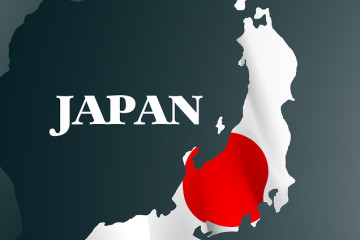Top U.S. Health Insurer to Look at Trump Obamacare Alternatives

published Oct 17, 2017 9:51:25 AM, by Zachary Tracer
(Bloomberg) —
UnitedHealth Group Inc., the U.S.’s biggest health insurer, said it’s excited about the the chance to sell health plans President Donald Trump is promoting as alternatives to Obamacare.
Last week, Trump signed an executive order promoting short-term health insurance plans, “association health plans” for business owners who could band together, and tax-advantaged savings accounts that could be used to pay for health services. The order — which Trump has acknowledged as a move to effectively dismantle Obamacare — rattled some health insurance and hospital stocks last week.
For insurers like UnitedHealth that have largely pulled out of the Affordable Care Act’s markets it could be an opportunity and a risk. The short-term plans have a history of consumer complaints and lawsuits, thoug may appeal to people looking for lower-cost, less-comprehensive coverage.
“We have a great deal of experience in the areas covered in the order — short-term policies, association plans and expanded use of HRAs,” Chief Executive Officer David Wichmann said on a call with investors. “We will be engaging with policymakers as the regulatory frameworks in these areas are developed.”
Wichmann made his remarks as part of the company’s third-quarter earnings report. The insurer raised its full-year adjusted earnings guidance to about $10 a share after beating analysts’ estimates, and said that spending on medical services declined. Those broad trends may be seen as good news for other health insurers, and a warning of lower volumes of business for hospitals and other health-care providers.
Sarah James, an analyst at Piper Jaffray & Co., said that her research has shown declining demand for medical services, auguring a “sectorwide theme of low costs” for insurers.
Changing Industry
U.S. health insurers have been going through a period of transition over the past several years, when many — including UnitedHealth — jumped into new markets created by the Affordable Care Act, and then pulled out after losses. Republicans have threatened to repeal the law, which also expanded the Medicaid program for the poor. While UnitedHealth is largely out of the market for individual Obamacare coverage, it has about 6.4 million Medicaid customers.
Dan Schumacher, the president of UnitedHealth’s insurance operation, said the company is “excited” to be able to offer short-term medical plans for as long as a year. The duration of the policies was limited to three months by the Obama administration.
“It provides a bridge for people in between coverage,” Schumacher said. “Before that regulation, we saw an incredible increase in the growth as the cost of exchange offerings has grown.”
UnitedHealth still has a nominal presence on the Affordable Care Act’s insurance markets. It said it will face at most an “extremely small” impact from Trump’s move last week, announced after the executive order, to stop paying subsidies to health insurers to fund co-pays and cost-sharing for lower-income patients.
The company’s shares rose 4.4 percent to $201.75 at 9:41 a.m. in New York, after earlier rising as much as 5.3 percent for the biggest intraday gain in a year. They’re up about 26 percent so far this year.
Hurricanes and Costs
The earnings results were initially posted on the company’s website late Monday night, ahead of their scheduled release Tuesday morning.
UnitedHealth said in a statement Tuesday that its medical-loss ratio, a measure of how much of every premium dollar is spent on care, was 81.4 percent. After adjusting for the pause of a tax related to Obamacare, the ratio was lower than a year ago. It was also better than estimates from analysts at Morgan Stanley and Leerink Partners.
In the third quarter, Hurricane Harvey struck Texas and Irma slammed into Florida. For-profit hospital operators such as HCA Healthcare Inc. and Tenet Healthcare Corp. have major operations in those states, and damage from the storms may have decreased business for hospitals and helped insurers’ margins as fewer patients used services.
For the year, UnitedHealth said it expects adjusted earnings of about $10 a share, up from a previously estimated range of $9.75 to $9.90 a share. Third-quarter earnings excluding one-time items were $2.66 a share, beating an average of analysts’ estimates.
UnitedHealth’s strong performance comes as it has shifted focus to more steady streams of income, such as Medicare plans for the elderly. Quarterly revenue at UnitedHealth’s Medicare and retirement unit increased 17 percent to $16.3 billion, and added 960,000 people, the company said in the statement. Its employer and individual unit revenue declined 1.5 percent to $13.1 billion, after the insurer’s pullback from Obamacare.
–With assistance from Caroline Chen.To contact the reporter on this story: Zachary Tracer in New York at ztracer1@bloomberg.net To contact the editors responsible for this story: Drew Armstrong at darmstrong17@bloomberg.net Timothy Annett
copyright
© 2017 Bloomberg L.P







No Comment